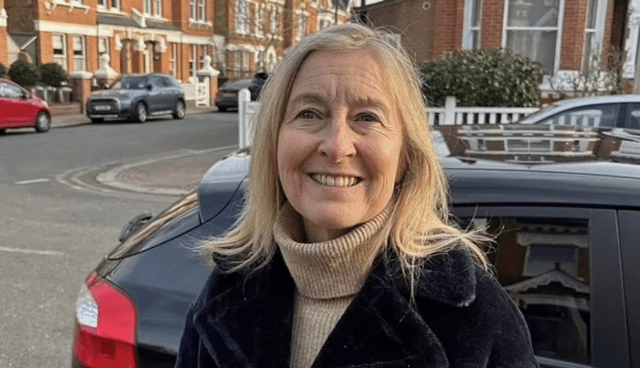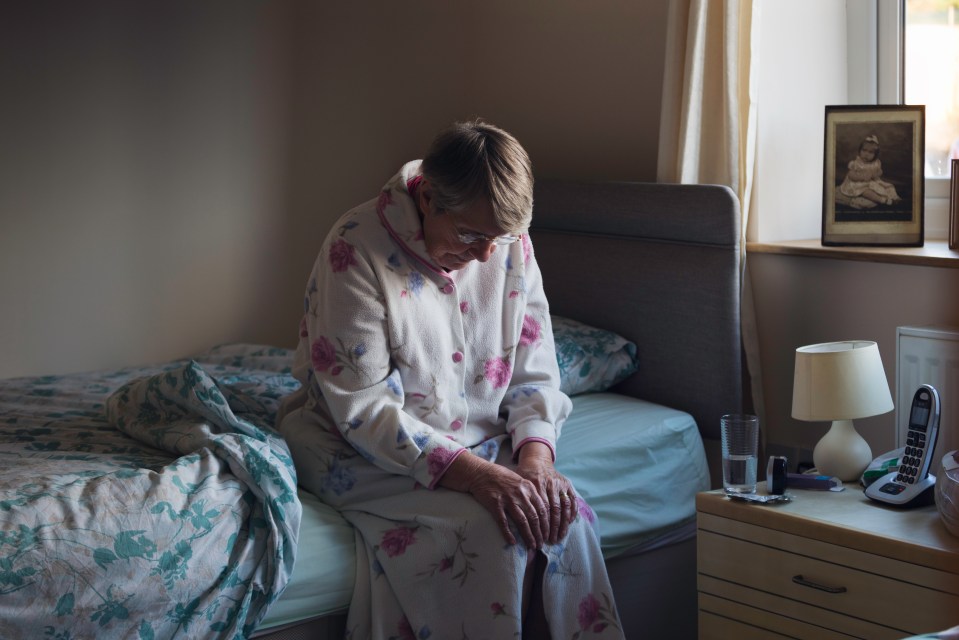We all experience confusion and forgetfulness now and then. But when could it be a sign that something is seriously wrong? We ask the experts. . .
When Fiona Phillips revealed that she had been diagnosed with Alzheimer’s after suffering brain fog, it tapped into all menopausal women’s fears.
The 64-year-old GMTV presenter had assumed her symptoms, which also included anxiety and confusion, were part of the menopause, but hormonal replacement therapy (HRT) failed to shift them.
After a series of tests, the mum of two was devastated when she was diagnosed with Alzheimer’s in 2022, aged 61. She became one of the 70,800 people diagnosed each year with early-onset dementia, under the age of 65.*
Her memoir, Remember When: My Life With Alzheimer’s, which was released in July, has ignited important conversations, from detecting early symptoms to how to care for a loved one.
Almost 1 million people in the UK have dementia, and two-thirds live with the most common type, Alzheimer’s.**
Some symptoms of dementia can be confused for other conditions or even just normal ageing. After all, we can expect our memory to become less sharp with age, right?
We asked experts from two leading Alzheimer’s charities to explain when brain fog is something more serious, and what to do next.
What is brain fog?
It feels maddening when a word gets stuck on the tip of your tongue or you forget why you walked into a room. You’ve probably joked about brain fog with your friends, but do you really know what is going on – and why?
“Brain fog is often used to describe the feeling of not being able to think clearly,” says Dr Simon Wheeler, senior knowledge officer at Alzheimer’s Society.
“Although it’s not a disease or illness itself, it can be a symptom of common health conditions including Covid-19, menopause, thyroid problems, sleep disorders, chronic pain and chronic fatigue syndrome.”
It may feel like it’s struck later in life, but brain fog isn’t a part of ageing, according to Emma Taylor, information services manager at Alzheimer’s Research UK.
“Anyone can experience brain fog at any age. And lifestyle factors like hormone changes, stress or tiredness can also play a part.”
Brain fog vs dementia
It is the persistence of symptoms and their progression that may prompt further tests.
“The biggest difference between brain fog and Alzheimer’s is that brain fog is temporary and often reversible,” says Emma.
If your brain fog is a symptom of certain health conditions, medication could help.
“Alzheimer’s is a progressive disease caused by a build-up of toxic proteins in the brain, which lead to brain cell death.
“There are currently no medications that can reverse it, and it will change everyday life,” Emma says.
For instance, people with dementia may struggle with routine tasks, like buttoning up a shirt or making a cup of tea.
“Signs of brain fog and early Alzheimer’s can be similar, so look out for symptoms getting worse.”
Does brain fog always precede dementia?
Women are more likely to experience both brain fog and dementia, which begs the question: is there any correlation?
“There is no direct link between the two, and no one reason for this,” says Dr Wheeler. “It could be down to women living longer than men, biological differences and differences in education, work and lifestyle.”
So, if you are experiencing brain fog, don’t panic – it doesn’t necessarily mean you will get dementia.
“Hormonal changes linked to menopause, specifically a drastic reduction in oestrogen, are part of the reason why women are more likely to develop dementia than men,” says Emma.
Around 62% of people living with dementia in the UK are women.***
“Oestrogen plays a key role in protecting our brain health, so when levels drop, this leaves the brain more vulnerable to Alzheimer’s,” says Emma.
Next steps to take
If brain fog is causing you concern, seek advice from your GP. It might be a case of rethinking your sleep, exercise and eating habits, or they may recommend tests to rule out certain things.
“Most conditions can be treated or managed with help from a doctor,” says Emma.
If you’re worried about dementia, Dr Wheeler recommends using the Alzheimer’s Society’s symptom checklist. But it is not a diagnosis tool, so if you are still concerned, see your GP.
“If someone is reluctant to seek help, Alzheimer’s Research UK has lots of helpful guidance to navigate tricky conversations,” says Emma.
These include keeping a diary of their symptoms or behaviour changes to discuss with them, or saying: “It may not be dementia causing these changes. It’s important to check if there is something else going on.”
What if it is dementia?
Fiona and her husband have openly discussed the toll of the disease on her, their relationship and their family, and Dr Wheeler says:
“Receiving a dementia diagnosis is crucial for getting help, but it can also be an emotionally challenging time, both for the person living with dementia and their loved ones.”
Here’s what you can do. . .
Looking after loved ones
Offer emotional support: This can be as simple as letting them know you’re there for them.
Stay connected: Include them in conversations and try to speak to them in simpler, shorter sentences so they don’t lose track of the conversation.
Practical support (for example, travel, appointments, paperwork)
If they’re not able to drive any more, offer a lift to help them stay active and involved in their local community.
Make a scrapbook of memories
This can help to keep a sense of who they are and what matters most.
Looking after yourself
“When you or someone you love is diagnosed with dementia, it’s not unusual to feel scared about the future. But there are lots of organisations that offer support and advice,” says Emma.
Find local support: Ask your GP surgery and local council for advice.
Look for support groups: Alzheimer’s Research UK and Alzheimer’s Society have a list of organisations, such as befriending services, memory cafes, and social groups, that offer support for people affected by dementia.
KEY DIFFERENCES
Here, Emma gives some helpful examples of behaviours that signal either brain fog or dementia.
Brain fog
- You walk into a room and forget why you went in.
- You misplace your keys, but find them after retracing your steps, or somewhere typical.
- You struggle to find the right word, but it comes to you later on.
- You forget an appointment, but remember it later or when reminded.
- You feel mentally sluggish, but can still follow a conversation.
Dementia
- You consistently walk into a room and forget where you are.
- You put your keys in the fridge or somewhere else random and don’t remember doing it.
- You forget common words and substitute them with unrelated ones.
- You forget the appointment entirely, even after being reminded.
- You lose track of what people are saying and repeat questions often.


















